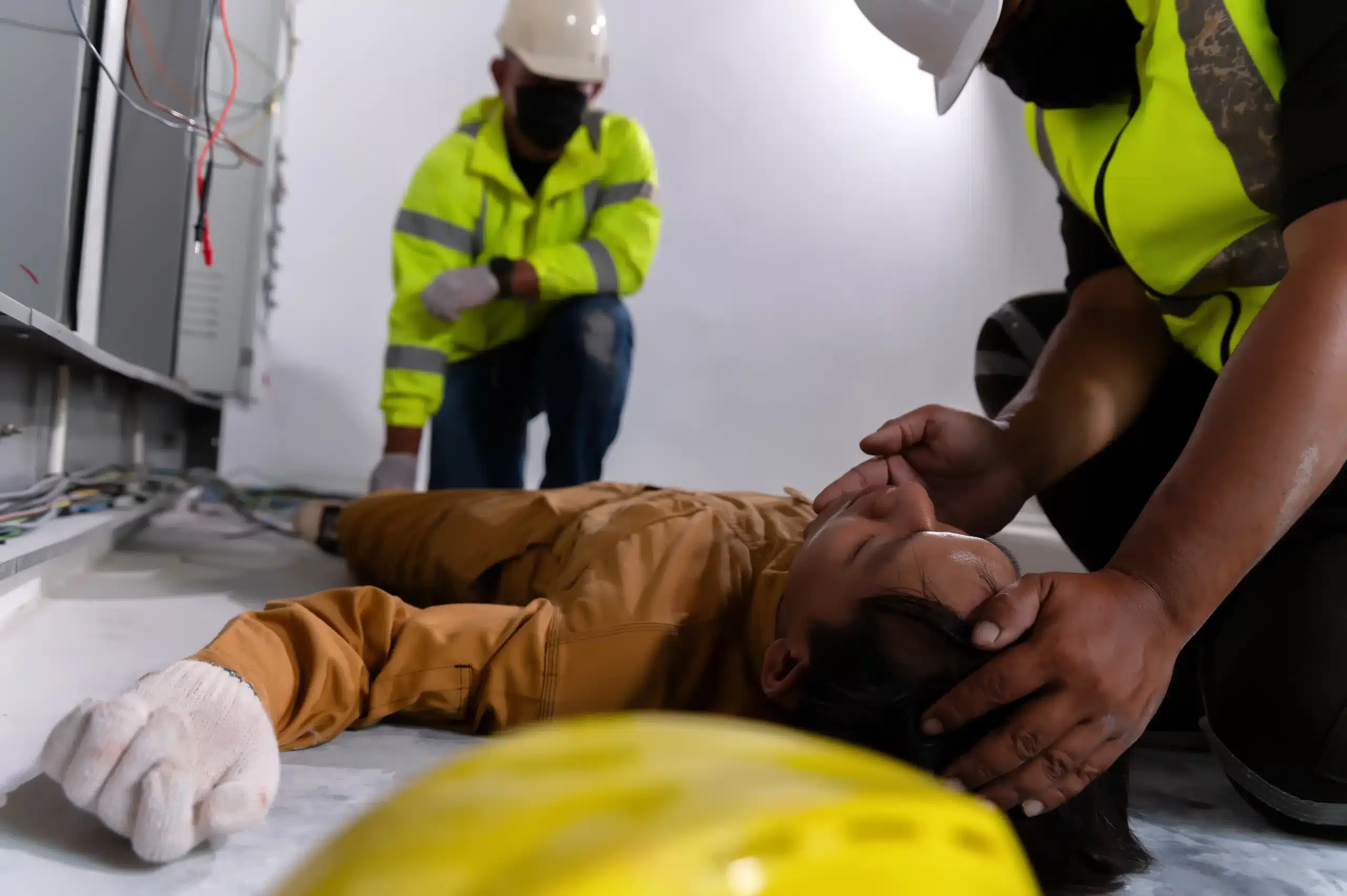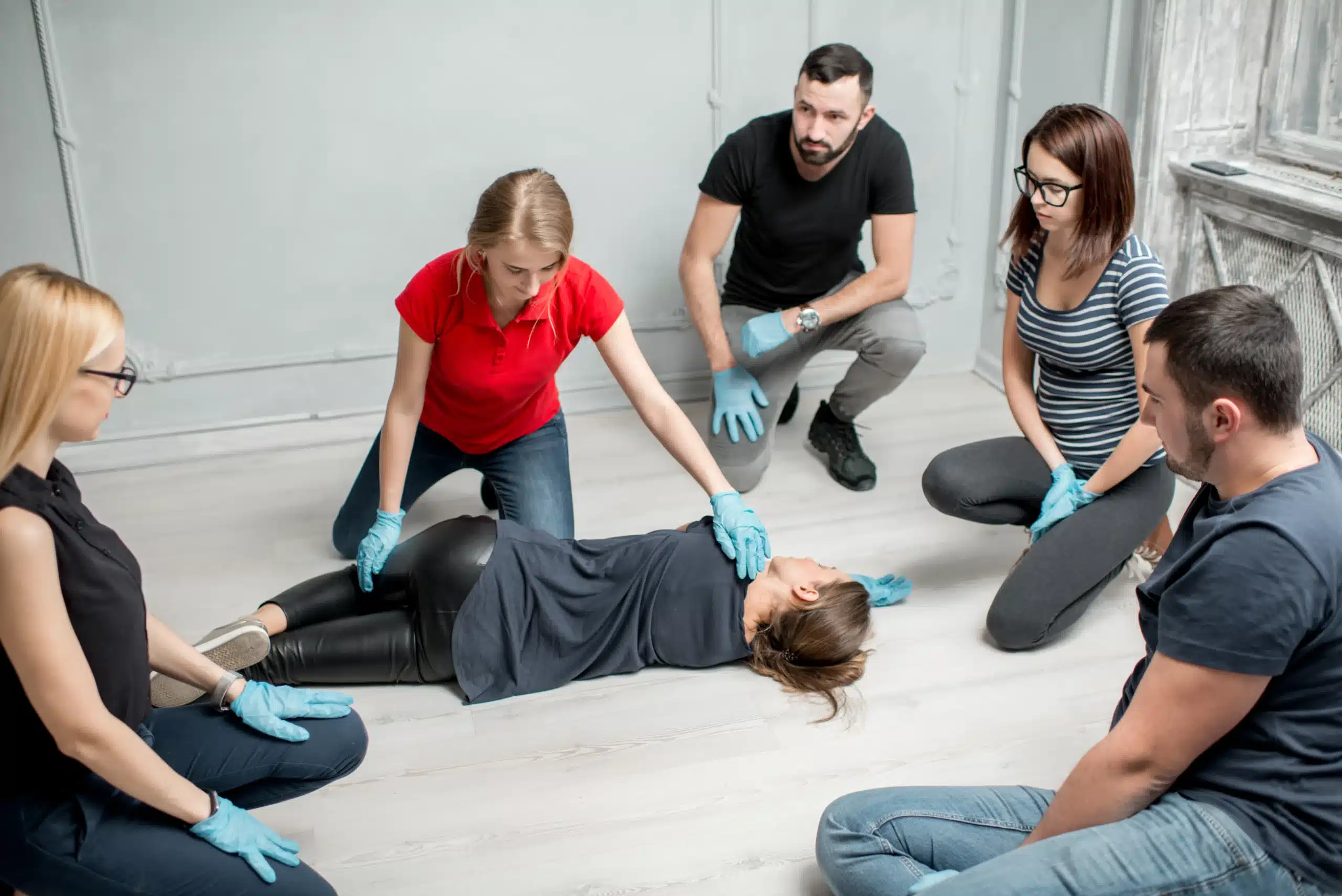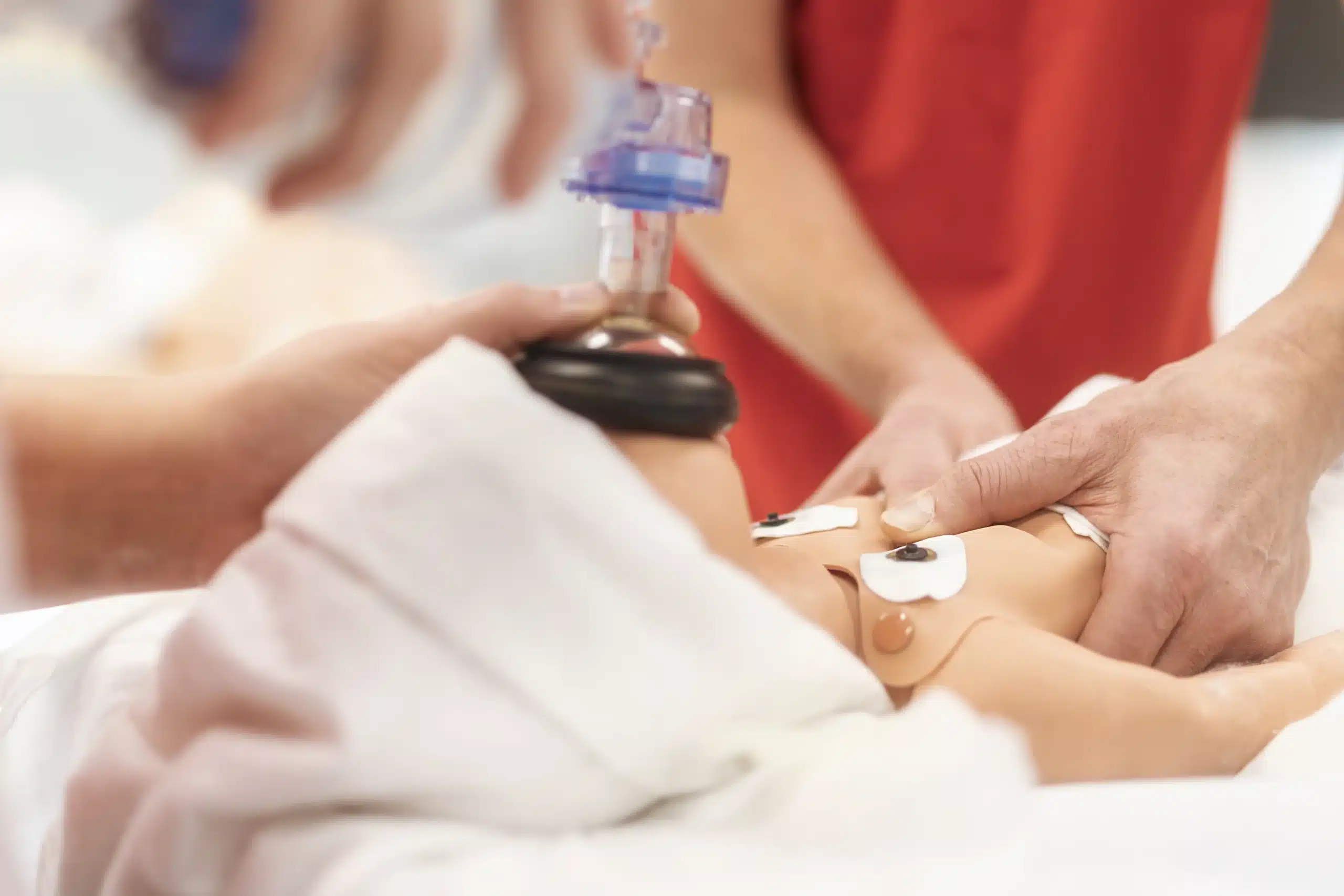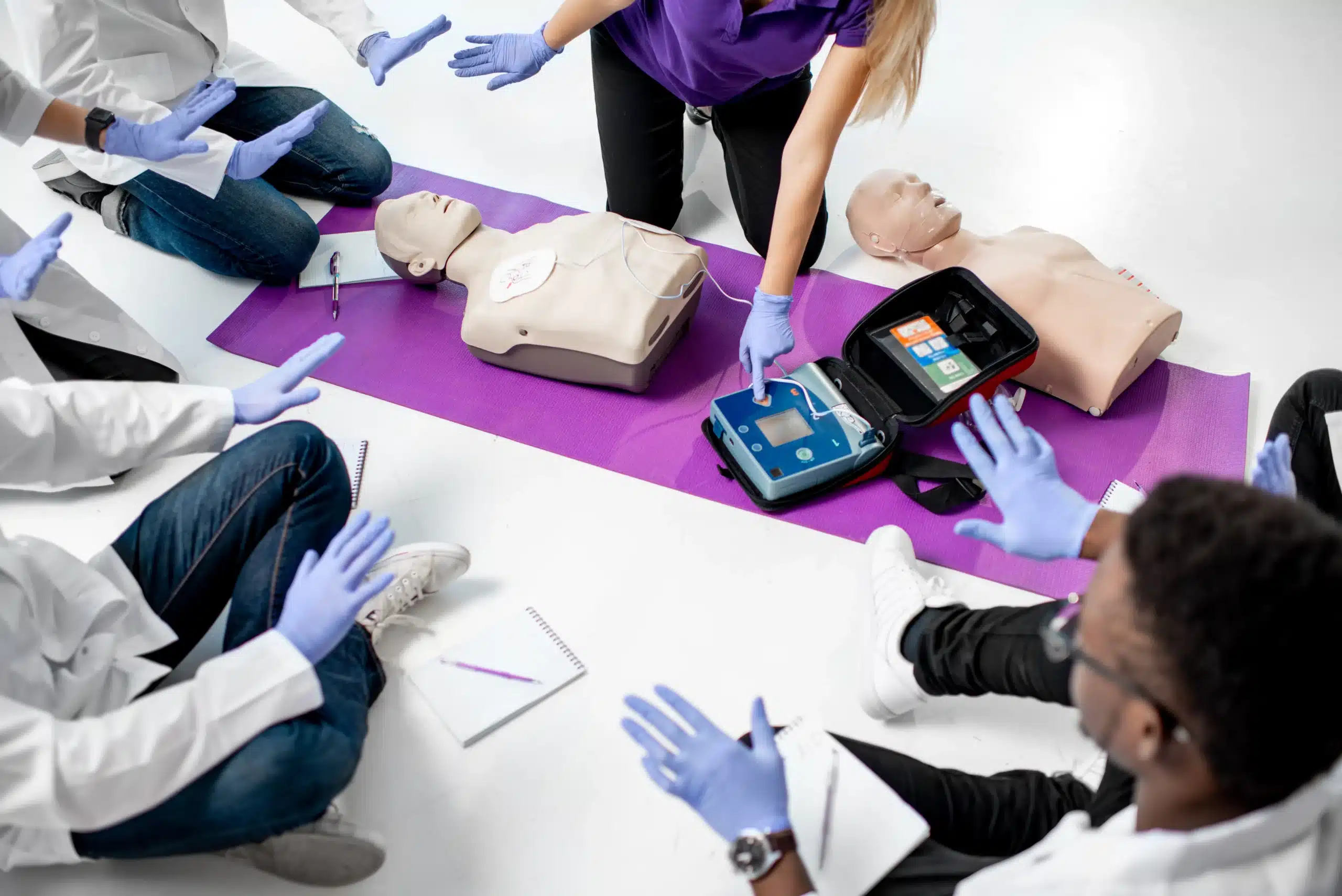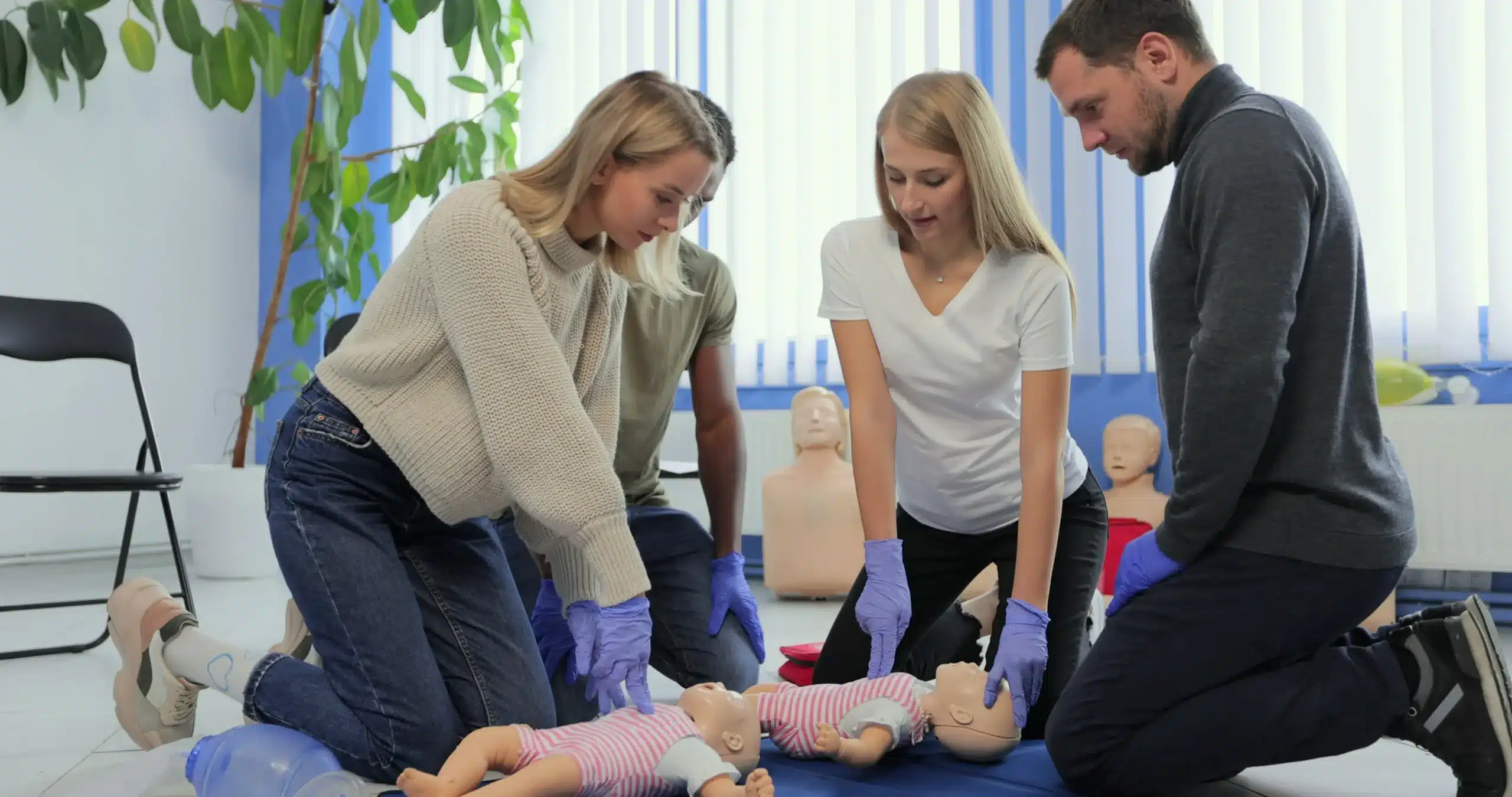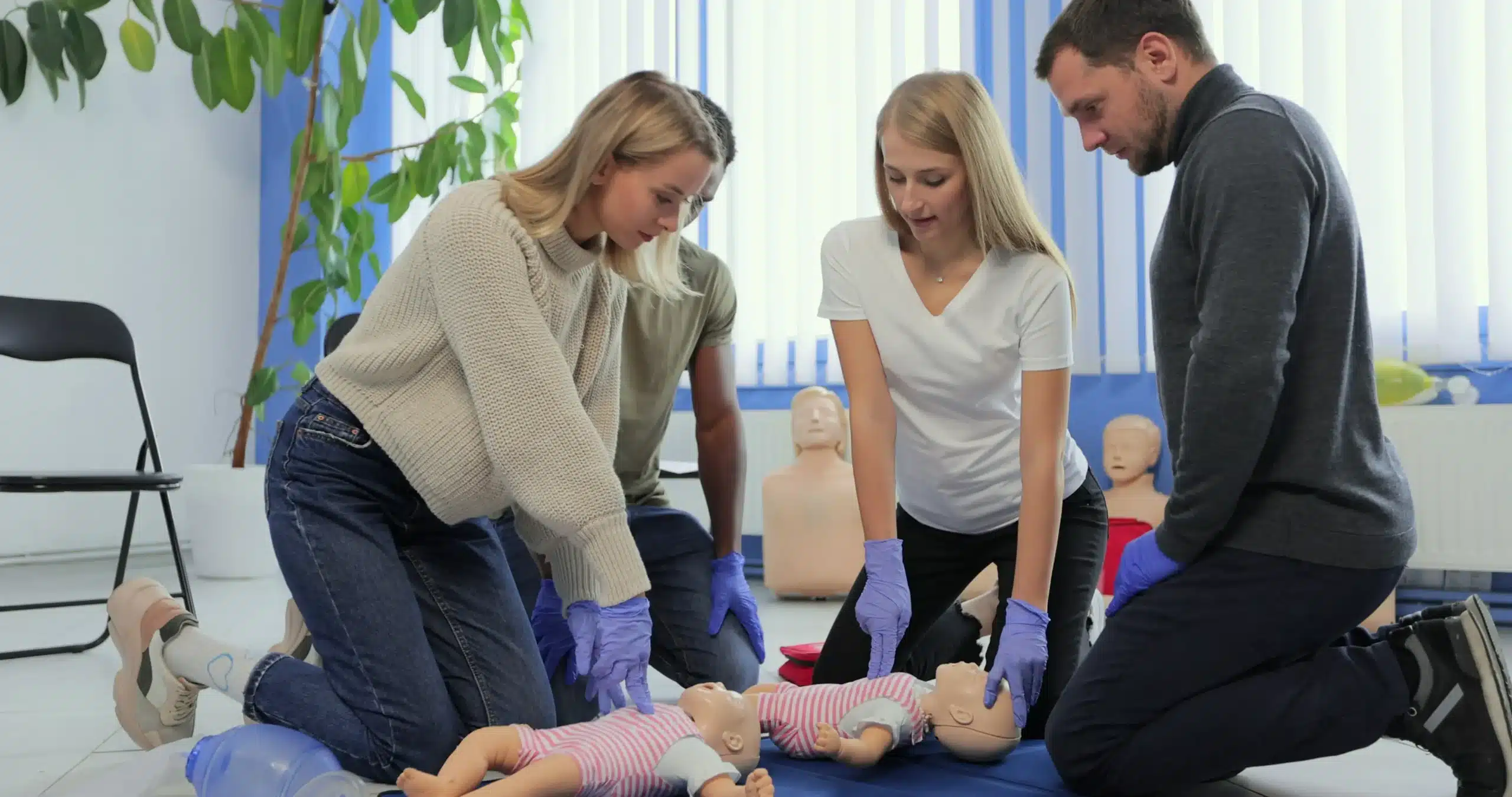In the fast-paced world of healthcare, being prepared for any situation is paramount. When it comes to cardiovascular emergencies, Advanced Cardiovascular Life Support (ACLS) certification is a game-changer. It empowers healthcare professionals with the skills and confidence to respond effectively in critical situations, potentially saving lives. This article serves as your comprehensive guide to ACLS, covering everything from the basics of what ACLS entails to the certification process and its career-boosting benefits. If you’ve been searching for “advanced cardiac life support near me,” you’re in the right place. We’ll explore the key skills you’ll gain, the different training options available, and how ACLS can enhance your career prospects.
Key Takeaways
- ACLS certification empowers healthcare providers: From doctors and nurses to EMTs and other healthcare professionals, ACLS provides the advanced training necessary to confidently manage cardiovascular emergencies and improve patient outcomes.
- Find the right ACLS course format: Online courses offer flexibility, while in-person training provides hands-on experience. Consider your learning style, schedule, and budget to choose the best fit.
- Proper preparation leads to ACLS success: Ensure you have current BLS certification, review recommended study materials, and understand the ACLS certification process to maximize your learning experience.
What is ACLS?
Advanced Cardiovascular Life Support (ACLS) is a set of advanced, evidence-based protocols designed to manage life-threatening cardiovascular emergencies. It goes beyond basic life support (CPR) with a systematic approach to assess, stabilize, and treat patients experiencing cardiac arrest, stroke, acute coronary syndrome, and other serious conditions. ACLS emphasizes teamwork, effective communication, and high-performance resuscitation techniques. It’s a dynamic field, constantly evolving to incorporate the latest medical research and best practices.
Key ACLS Skills
ACLS training equips healthcare professionals with a range of essential skills, including:
- Airway management: Establishing and maintaining a patent airway is crucial for oxygenation and ventilation. This includes techniques like intubation, bag-mask ventilation, and the use of airway adjuncts.
- Rhythm recognition and interpretation: Understanding electrocardiograms (ECGs) is fundamental to identifying and treating heart rhythms and arrhythmias effectively. ACLS certification often covers these skills in detail.
- Electrical defibrillation and cardioversion: Knowing when and how to use defibrillation and synchronized cardioversion is critical for restoring normal heart rhythm.
- Vascular access: Establishing intravenous (IV) access is essential for administering medications and fluids quickly.
- Pharmacological interventions: Understanding the appropriate use of medications in various cardiac emergencies is a core component of ACLS.
Who Needs ACLS Certification?
ACLS certification is vital for a wide range of healthcare providers who may encounter cardiovascular emergencies. This includes:
- Physicians: Especially those specializing in emergency medicine, cardiology, critical care, and anesthesiology.
- Nurses: Particularly those working in emergency rooms, intensive care units, and critical care settings. Many hospitals require their nurses to maintain current ACLS certification.
- Paramedics and EMTs: Pre-hospital providers often manage cardiac emergencies before reaching a hospital. For these professionals, ACLS skills are often put to the test in dynamic environments.
- Respiratory Therapists: These professionals play a key role in airway management and ventilation. Their expertise is essential in many ACLS scenarios.
- Other healthcare professionals: Anyone who may encounter cardiac emergencies in their practice, such as physician assistants, pharmacists, and medical technicians, can benefit from ACLS certification. It demonstrates a commitment to providing high-quality patient care and staying up-to-date with the latest advancements in emergency cardiovascular care.
Find ACLS Training Near You
So, you’re ready to get your Advanced Cardiac Life Support (ACLS) certification—great! Whether you’re a seasoned healthcare provider or just starting out, finding the right training program is an important first step. This section will guide you through the process of locating ACLS courses near you.
Online Search Strategies
Finding an ACLS course that fits your schedule and budget is easier than ever, thanks to online search engines. Start with a simple search like “ACLS training near me” or “ACLS certification [your city].” This will generate a list of local providers offering ACLS courses. Be sure to check multiple sources, including CPR training websites like CPR Classes Oakland, and even community colleges or hospitals. As you’re browsing, pay attention to course dates, times, and costs to find the best fit. Reading reviews from past students can also give you valuable insights into the quality of instruction and the overall learning experience. With the right training and preparation, you can successfully obtain your ACLS certification.
Local Healthcare Institutions Offering ACLS
Many hospitals and medical centers offer ACLS training on-site for their staff and sometimes even to the public. Reach out to your local hospitals or check their websites for information on upcoming courses. Professional organizations like the American Heart Association also offer ACLS courses. Since ACLS is relevant to a wide range of medical professionals, including emergency room physicians, anesthesiologists, critical care nurses, and paramedics, you’re likely to find a course tailored to your specific needs. Remember, recertification is key in healthcare, and ACLS is no exception. Finding a local provider can make staying up-to-date with the latest advancements in ACLS care much more convenient. Consider asking about group discounts if you’re signing up with colleagues—it can be a great way to save on training costs. CPR Classes Oakland offers a low price guarantee, so be sure to check them out.
Top ACLS Training Providers
Finding the right ACLS training provider is a crucial step in your certification journey. Here are a few reputable options to consider:
Safety Training Seminars
Safety Training Seminars offers ACLS certification in Oakland and over 60 other cities. They focus on providing excellent customer service, low prices, and a fast certification process. They also offer other courses like BLS, PALS, and CPR, making them a convenient one-stop shop for all your certification needs. Serving Alameda, Oakland, and Berkeley, CA, their Oakland location offers accessible training for those in the Bay Area. ACLS training isn’t limited to specific specialties—it’s relevant for a wide range of healthcare providers who may face cardiac emergencies. For those looking for group discounts, Safety Training Seminars offers reduced rates for group classes.
American Heart Association
The American Heart Association (AHA) sets the standards for CPR and ACLS, so completing your ACLS training through them ensures you’re learning the most up-to-date guidelines. AHA ACLS certification is a recognized credential and demonstrates a commitment to patient care. Many hospitals and healthcare systems prefer or require AHA certification for their staff. The AHA provides numerous resources and materials to support your learning and ongoing development.
Red Cross
The Red Cross is another well-respected organization offering ACLS training. While they are widely known for CPR training, their ACLS courses provide comprehensive instruction on advanced life support techniques. ACLS goes beyond basic CPR, equipping healthcare professionals with the skills to manage complex cardiovascular emergencies. The Red Cross offers a blended learning option, combining online coursework with in-person skills sessions, offering flexibility for busy professionals.
Local Hospitals and Medical Centers
Many local hospitals and medical centers offer ACLS training courses. This can be a convenient option for healthcare professionals working in those facilities. Check with your hospital’s education department or human resources to see if they offer ACLS courses. This type of training is often tailored to the specific equipment and procedures used within that hospital system. Plus, paramedics and EMTs trained in ACLS can begin life-saving interventions before even reaching the hospital, highlighting the importance of ACLS beyond traditional hospital environments.
In-Person vs. Online ACLS Courses: Pros and Cons
Choosing between in-person and online ACLS certification often comes down to your learning style, schedule, and budget. Both formats have their own perks, so let’s weigh the pros and cons to help you find the best fit.
Flexibility and Convenience
Online ACLS courses offer unmatched flexibility. You can study at your own pace and revisit tricky material whenever you need to, which is a lifesaver for busy professionals juggling work and family. Plus, no commute! This saves you time and money. In-person classes, on the other hand, provide a structured learning environment with a fixed schedule and location, which some students prefer. Because ACLS training applies to a wide range of healthcare providers, online learning opens doors for people in remote areas or those with limited access to traditional training centers.
Hands-on Experience and Interaction
In-person ACLS courses shine when it comes to hands-on training. You’ll practice essential skills like bag-mask ventilation and IV line insertion in a simulated environment, with instructors providing immediate feedback. This direct interaction is key for building confidence and proficiency in these life-saving procedures. While some online programs incorporate simulations, they can’t quite capture the dynamic nature of a real-life emergency. This hands-on experience is especially important for professionals like paramedics and EMTs, who often begin ACLS interventions before reaching a hospital.
Cost Considerations
Online ACLS courses are often more budget-friendly than in-person training. This is usually because online programs have lower overhead costs, leading to more affordable tuition. However, don’t make cost your only deciding factor. Think about the long-term value. An in-person course, while possibly pricier upfront, could offer a richer learning experience that benefits your career in the long run. Whether you’re a seasoned anesthetist or a medical student just starting out, the quality of your training matters. Our low price guarantee ensures you get the best value for your ACLS certification.
Certification Validity
Both in-person and online ACLS courses result in the same recognized certification, as long as they’re accredited by the American Heart Association. This means your certification will hold the same weight and meet employer requirements, regardless of the format. The important thing is to choose an accredited program that follows the latest AHA guidelines. Recertification, whether online or in-person, is equally important for staying up-to-date. Pick the format that helps you maintain your skills and knowledge best.
How ACLS Certification Works
Getting ACLS certified involves a structured process designed to equip you with the knowledge and skills to handle cardiopulmonary emergencies effectively. Here’s what you can expect:
Course Components and Duration
ACLS training builds upon the foundation of basic life support (BLS) skills. The curriculum dives into essential concepts like recognizing and managing cardiac arrest, implementing effective team dynamics during resuscitation, and providing comprehensive post-arrest care. You’ll also cover crucial skills such as airway management and administering relevant medications. Because ACLS courses are comprehensive, expect a time commitment of around 10–12 hours for initial certification.
Exams and Skills Assessments
The typical ACLS course follows a three-step process. First, you’ll engage with lessons and videos covering key concepts and procedures. Then, you’ll demonstrate your practical skills in a hands-on skills test, where you’ll need to achieve a passing score of 80%. Finally, you’ll take a written exam to assess your understanding of the material, also requiring an 80% score to pass. Don’t worry if you don’t succeed on the first try—you can retake both the skills test and the written exam as needed to demonstrate your proficiency.
Certification Validity and Renewal
Your hard-earned ACLS certification isn’t permanent. It’s typically valid for two years. To maintain your credentials and stay current with the latest advancements in ACLS, you’ll need to complete a recertification course before your current certification expires. Recertification courses are generally shorter than the initial certification course, focusing on refreshing your knowledge and skills.
ACLS Training Costs
Getting ACLS certified is an investment in your career and your ability to provide top-notch patient care. Understanding the costs involved can help you budget effectively. Let’s break down the typical expenses associated with ACLS training.
Average Prices for Initial and Renewal Courses
ACLS course fees vary based on several factors, including your location, the training provider, and whether you’re taking an initial certification course or a renewal. Initial certification courses tend to be pricier than renewals since they cover more material. Expect initial ACLS certification to range from $150 to $300. Renewal courses, which are shorter and focus on refreshing your skills, typically cost between $100 and $250. You can find a breakdown of prices for various courses, including ACLS, at Star CPR. Remember that prices are subject to change, so check with your chosen provider for the most up-to-date information. Safety Training Seminars offers a low price guarantee to ensure you’re getting the best value.
Additional Costs
Beyond the course fee itself, you might have some additional expenses. Some providers include the required textbook in the course fee, while others offer it separately. If you need to buy a textbook, factor in an additional $30 to $50. Some training centers also offer blended learning, combining online modules with in-person skills sessions. These blended courses sometimes have different pricing, so ask about all available options.
Discounts and Promotions
Look for potential discounts to save on your ACLS training. Many providers offer discounts for group registrations, making it a cost-effective option if you’re training with colleagues. Safety Training Seminars offers group discounts. You might also find discounts for students, military personnel, or first responders. Keep an eye out for promotional offers, too. The Red Cross occasionally offers discounts on training materials and supplies. Exploring these options can make your ACLS training more affordable.
Prepare for Your ACLS Course
Getting ready for an ACLS course? A little prep work goes a long way. This section covers the essentials to help you succeed.
Prerequisites and Study Materials
Before you begin your ACLS training, ensure you meet the prerequisites. Typically, this includes a current BLS for Healthcare Providers certification. Check with your chosen training center to confirm their specific requirements. Solid BLS knowledge forms the foundation for ACLS, so brushing up on those skills is a smart move. Many ACLS courses recommend or require a textbook. Often, providers like Safety Training Seminars include study materials as part of the course fee. Ask your provider what materials they use so you can get a head start. One common misconception is that ACLS certification is difficult to obtain. With the right training and preparation, you can successfully obtain your ACLS
Tips for Success
Beyond the basics, a few practical tips can make a real difference in your ACLS experience. First, understand that ACLS training isn’t just for specialists. It’s a valuable skill set for any healthcare provider who might face a cardiac emergency. Knowing this helps you approach the course with the right mindset. While CPR is essential, ACLS goes beyond basic life support. Familiarizing yourself with the broader scope of ACLS will deepen your understanding and improve your ability to respond effectively in critical situations. Finally, remember that ACLS certification demonstrates your commitment to patient care. Embrace the challenge, and know that the skills you gain will be invaluable throughout your career.
Debunking Common ACLS Myths
There are quite a few misconceptions floating around about Advanced Cardiac Life Support (ACLS) certification. Let’s clear those up so you can get a realistic picture of what to expect.
Misconceptions about Difficulty and Relevance
One common myth is that getting your ACLS certification is incredibly difficult. It’s challenging, as it should be for something as important as advanced cardiac care, but with the right preparation and a solid training course like the one offered by Safety Training Seminars, it’s absolutely achievable. Many find the hands-on practice and real-world scenarios especially helpful during training. Another misconception is that ACLS certification is only relevant for certain medical specialties. In reality, ACLS training is valuable for any healthcare provider who might encounter cardiac emergencies, from paramedics and nurses to physicians and other healthcare professionals.
The True Value of ACLS Certification
Why is ACLS certification so important? It equips healthcare professionals with the advanced, life-saving skills needed to handle serious cardiovascular emergencies. While basic CPR is essential, ACLS training goes further, covering a broader range of interventions, including airway management, rhythm recognition, and pharmacology. This specialized knowledge can significantly improve patient outcomes. Plus, maintaining your ACLS certification demonstrates your commitment to staying current with the latest advancements in cardiac care, which can lead to career advancement opportunities. It’s not just a checkbox; it’s about providing the best possible care in critical situations.
Benefits of ACLS Certification
Getting your Advanced Cardiac Life Support (ACLS) certification is a significant step, so understanding its benefits is important. Whether you’re a seasoned healthcare provider or just starting out, ACLS certification offers numerous advantages that can positively impact your career and the lives of your patients.
Enhanced Patient Care
ACLS equips healthcare professionals with the knowledge and skills to manage and treat patients experiencing serious cardiovascular emergencies. These skills are crucial for a range of medical professionals, from paramedics providing pre-hospital care to physicians, nurses, and other healthcare providers in various settings. With ACLS training, you’ll be prepared to make quick, informed decisions, potentially saving lives and improving patient outcomes. This comprehensive approach ensures that patients receive the best possible care during critical moments.
Career Advancement
In a competitive healthcare landscape, ACLS certification can open doors to new opportunities. Many healthcare institutions require ACLS certification for certain positions, especially those involving critical care or emergency medicine. Earning this certification demonstrates your commitment to professional development and can give you an edge when applying for jobs or seeking promotions. It shows your dedication to providing high-quality patient care, making you a valuable asset to any healthcare team.
Confidence in Emergencies
Beyond practical skills, ACLS certification instills confidence when facing high-pressure emergency situations. Knowing you have the training to handle complex cardiovascular emergencies can reduce stress and allow you to perform at your best when it matters most. This confidence benefits not only you but also your team, fostering a sense of preparedness and teamwork in critical situations. Regular recertification ensures you stay up-to-date with the latest advancements in ACLS, further building your expertise and ability to provide effective care. This ongoing commitment to staying current reinforces your value as a healthcare professional.
Related Articles
- ACLS Courses in Oakland: Your Complete Guide – Oakland CPR Classes
- Advanced Cardiac Life Support in Oakland: Find the Right Course – Oakland CPR Classes
- Fast & Flexible ACLS HeartCode in Oakland – Oakland CPR Classes
Frequently Asked Questions
What exactly does ACLS training cover?
ACLS training goes beyond basic CPR to teach advanced techniques for managing life-threatening cardiovascular emergencies like cardiac arrest, stroke, and acute coronary syndromes. You’ll learn skills such as airway management, ECG interpretation, electrical defibrillation, vascular access, and administering medications in emergency situations. The training emphasizes teamwork and effective communication to ensure coordinated and efficient patient care.
How do I find an ACLS course near me?
A quick online search using keywords like “ACLS training near me” or “ACLS certification [your city]” is a great starting point. Check CPR training websites, local hospitals, community colleges, and professional organizations like the American Heart Association. Look at reviews and compare course dates, times, and costs to find the best fit for your needs.
Do I need any prior certifications before taking an ACLS course?
Yes, you typically need a current BLS (Basic Life Support) for Healthcare Providers certification before starting ACLS training. It’s the foundational knowledge upon which ACLS builds. Always double-check with your chosen training center to confirm their specific prerequisites.
What’s the difference between online and in-person ACLS courses?
Online courses offer flexibility, allowing you to learn at your own pace and from anywhere. In-person classes provide a structured environment with direct interaction with instructors and hands-on practice. Both formats lead to the same recognized certification if the program is accredited. Consider your learning style and schedule when deciding which format is right for you.
How much does ACLS certification cost, and how long is it valid?
The cost of ACLS certification varies depending on the provider and location, generally ranging from $150 to $300 for initial certification and $100 to $250 for renewal courses. Look for potential discounts for group registrations or special promotions. ACLS certification is typically valid for two years, after which you’ll need to recertify to stay current.


